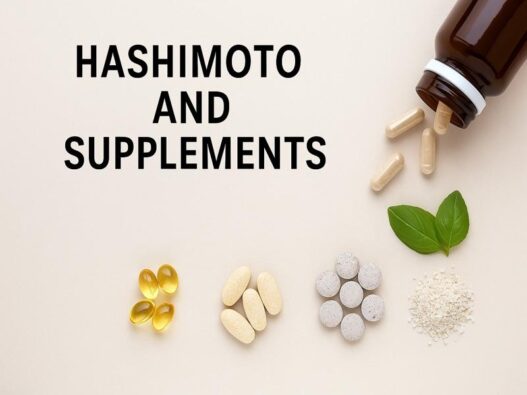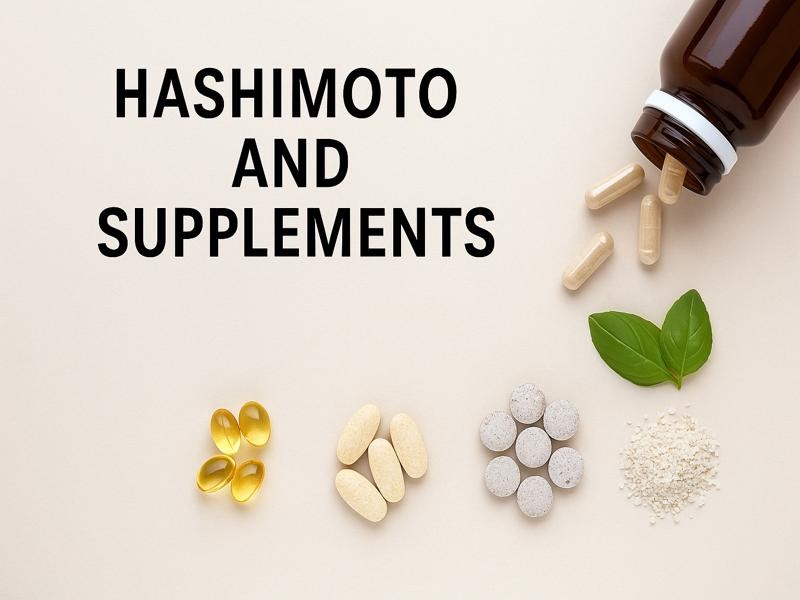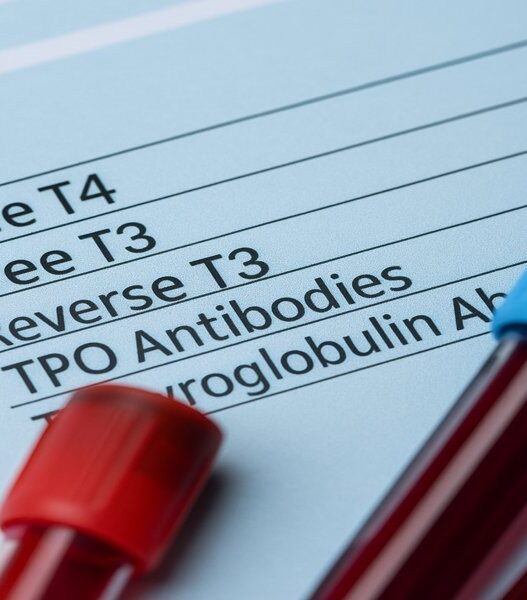Hashimoto and Supplements: To Supplement or Not to Supplement
Hashimoto and Supplements: A Personal Dilemma
When I first got diagnosed with Hashimoto’s and autoimmune gastritis, I was overwhelmed. My body felt like it was falling apart, and every doctor I saw had a different suggestion. Some told me supplements were a waste of money, while others insisted they were the missing piece. I didn’t know who to trust. That’s why I asked myself the very question that became the title of this blog: Hashimoto and Supplements, to supplement or not to supplement.
I share this confusion openly in my book, From Pain to Wellness: Overcoming Autoimmune Diseases, an Undisclosed Epidemic. It was not just about taking pills. It was about understanding what my body needed, when it needed help, and how to avoid making things worse. That shift in thinking gave me clarity and control.
Why Supplements Matter in Autoimmune Diseases
Autoimmune conditions are notorious for draining the body. Chronic inflammation, digestive issues, and restrictive diets make it harder to absorb key nutrients. Food should always come first, but sometimes food isn’t enough.
For example, vitamin D deficiency is common in Hashimoto’s and has been linked with higher antibody levels (Autoimmune Thyroiditis and Vitamin D). Magnesium plays a role in hundreds of enzymatic reactions, and low levels may interfere with the conversion of T4 into active T3. Selenium supplementation has been associated with reductions in thyroid peroxidase (TPO) antibodies in some patients.
I saw this in my own labs. Even when I ate nourishing meals, I still tested low in several key nutrients. That’s when I realized that Hashimoto and supplements are not about replacing food. They are about filling gaps created by disease and stress.
Want updates when I publish new blogs or recipes?
The Risks of Blind Supplementation in Hashimoto and Supplements
On the other hand, supplementing without strategy can backfire. Many people hear that iodine supports thyroid health and start taking it. Yet excess iodine has been shown to worsen Hashimoto’s and raise antibody levels.
Iron is another tricky one. Low iron can contribute to fatigue and hair loss, but too much can build oxidative stress, which damages cells. Even commonly discussed nutrients like zinc, selenium, or vitamin A can be harmful if taken in excess.
In my own case, I once pushed zinc too high and ended up lowering copper levels. That imbalance caused new symptoms until I corrected it. I share these lessons in From Pain to Wellness because they highlight the danger of guessing.
That’s why I always remind everyone that more is not better.
The truth is simple: Hashimoto and supplements can heal or harm. Labs, functional ranges, and retesting are the compass. My Hashimoto’s Tests Guide explains those ranges in detail, since “normal” on a lab slip is often far from optimal.
Key Nutrients for Thyroid and Autoimmune Health
Below are the vitamins, minerals, and key compounds most important for thyroid function. Each section links back to the central question: to supplement or not to supplement.
Vitamin D
Vitamin D supports immune balance. Very high levels can raise blood calcium, leading to kidney stones, nausea, or kidney and heart complications (Vitamin D Toxicity – A Clinical Perspective).
Magnesium
Magnesium supports T4 to T3 conversion and calms nerves and muscles. It plays a key role in thyroid hormone conversion and regulation. For example, a study by Ige et al. (2019) showed that oral magnesium supplementation in patients with diabetes helped correct lowered T3 and TSH levels. Another model study (Moncayo & Moncayo, 2014) links magnesium deficiency with impaired thyroid function, especially under physical or psychological stress.
However, magnesium over-supplementation carries risks. According to StatPearls: Magnesium Toxicity (2022), excessive magnesium—especially when kidney function is reduced—can lead to dangerously low blood pressure, slowed breathing, or even cardiac arrest.
Selenium
Selenium helps produce antioxidants and sometimes lowers thyroid antibodies in people with Hashimoto’s. For example, Wang et al. (2023) showed that selenium supplementation reduced TPO-Ab levels at 3 and 6 months in patients with autoimmune thyroiditis. Zhang et al. (2025) also found a drop in TPO-Ab in AIT patients after selenium supplementation.
However, high doses of selenium carry risk. In one outbreak, a supplement that was mislabelled delivered ~200× the expected amount, and many people developed hair loss, nail brittleness, digestive issues, and fatigue (MacFarquhar et al., 2010).
One or two Brazil nuts per day may contain enough selenium, though content varies, so testing is still important.
Zinc
Zinc supports thyroid hormone production and immune strength.
According to StatPearls (2022), high supplemental zinc (especially above recommended limits) can lead to copper deficiency, anemia, immune suppression, and stomach upset. Schoofs et al. (2024) describe both acute and chronic zinc toxicity with symptoms like nausea, vomiting, abdominal discomfort, and metabolic imbalances.
Iron (Ferritin)
Iron supports energy and hair growth, and ferritin should ideally be 70–100 ng/mL. Too much iron may increase oxidative stress, infection risk, and organ damage.
Vitamin B12 and Folate
B12 and folate are crucial for methylation, detox, and energy. High B12 is usually safe, but very elevated levels may indicate other health issues. Excess folate can mask B12 deficiency and contribute to nerve damage.
B Vitamins
B vitamins play an important role in energy, nervous system health, and methylation pathways that influence thyroid function. In addition to Vitamin B12 and Folate, other B vitamins matter too. Vitamin B1 (thiamine) supports energy metabolism, and some people with Hashimoto’s notice less fatigue when they supplement it. Vitamin B2 (riboflavin) is needed for thyroid hormone production.
Not all are risk-free. Very high doses of vitamin B3 (niacin) can cause flushing, liver stress, and insulin resistance in some cases. Too much vitamin B6 (pyridoxine) can lead to nerve tingling, numbness, or even neuropathy when taken long-term in high amounts. Because of this, it’s best to stay close to recommended doses and only go higher under professional guidance.
Vitamin A
Vitamin A supports thyroid receptor activity and immune health. Over-supplementation may cause nausea, liver damage, or bone loss.
Iodine
Iodine is necessary for thyroid hormone production. But too much iodine can be a problem, especially in Hashimoto’s. For example, a study by Xu et al. (2016) showed that excess iodine promotes apoptosis of thyroid follicular epithelial cells and increases oxidative stress, which may worsen Hashimoto’s. Another review (Kalarani et al., 2022) found that high iodine intake correlates with greater incidence of autoimmune thyroid disease.
Vitamin C
Vitamin C supports adrenal health and improves iron absorption. Very high doses may lead to diarrhea, kidney stones, and stomach upset.
Calcium
Calcium strengthens bones but interacts with thyroid medication. Excessive supplementation has been linked with kidney stones and possibly cardiovascular risks.
Omega-3 Fatty Acids
Omega-3s help reduce inflammation. Very high doses may increase bleeding risk.
Copper
Copper balances zinc and supports energy. High levels may cause oxidative stress and liver toxicity.
Potassium
Potassium supports energy, muscle function, and fluid balance. But too much potassium can pose serious risks, especially when kidneys aren’t working perfectly, or when medications or supplements interfere with potassium excretion.
Manganese
Manganese is a cofactor in thyroid hormone production. Very high exposure may cause neurological issues.
Practical Tips for Hashimoto and Supplements
Always test first.
Compare results to functional ranges.
Add one supplement at a time.
Choose clean, filler-free products.
Re-test every few months.
These steps, explained in the Hashimoto’s Tests Guide, helped me stop guessing and start healing.
Hashimoto and Supplements: More Than Pills
Supplements matter, but they are not the whole picture. Sleep, stress, gut health, and toxin exposure also impact thyroid function. Supplements support healing, but they don’t replace lifestyle foundations.
Hashimoto and Supplements in Balance
So, Hashimoto and supplements, are they friends or foes? The truth is, they can be both. Supplements are powerful when chosen with testing and balance. They can also be harmful when taken blindly.
Food remains the cornerstone, but supplements help bridge gaps when the body is under strain. My healing came when I used both together, guided by labs and functional ranges. That’s the clarity I share in my Hashimoto’s Tests Guide and in From Pain to Wellness: Overcoming Autoimmune Diseases, an Undisclosed Epidemic.
Additives in Hashimoto and Supplements: How to Choose Wisely
When looking at Hashimoto and supplements, the quality of the product matters as much as the nutrient itself. Many supplements contain additives such as artificial colors, titanium dioxide, soy lecithin, dairy proteins, or gluten-based fillers. For people with autoimmune disease, these ingredients can trigger unnecessary inflammation or digestive distress.
To choose better options:
Look for supplements labeled gluten-free, dairy-free, and soy-free.
Avoid unnecessary binders, artificial sweeteners, or coatings.
Select brands that undergo third-party testing for purity and potency.
Choose capsules over tablets when possible, since tablets often require more fillers.
Check the ingredient list carefully and aim for the shortest list possible.
In my own journey, learning to read labels was just as important as learning which nutrients to take. For Hashimoto and supplements, clean ingredients mean your body can focus on absorbing what it needs, without dealing with hidden irritants.
Supplements can be powerful allies, but they’re only one piece of the healing puzzle. If you found this helpful, explore more of my blogs where I share practical steps for living well with Hashimoto’s and autoimmune conditions.



Each article builds on the same idea: real stories, functional insights, and research you can trust.
Want updates when I publish new blogs or recipes?
FAQs on Hashimoto and Supplements
Is food enough for Hashimoto’s?
Food is essential, but malabsorption and inflammation often mean supplements are necessary.
Which supplements help most in Hashimoto’s?
Vitamin D, selenium, magnesium, zinc, B12, and omega-3s are commonly helpful, but always test first.
Can supplements replace thyroid medication?
No. Supplements support healing but do not replace levothyroxine when the thyroid is damaged.
How do I know if a supplement is working?
Track symptoms, retest labs, and give your body 8–12 weeks to respond.






















